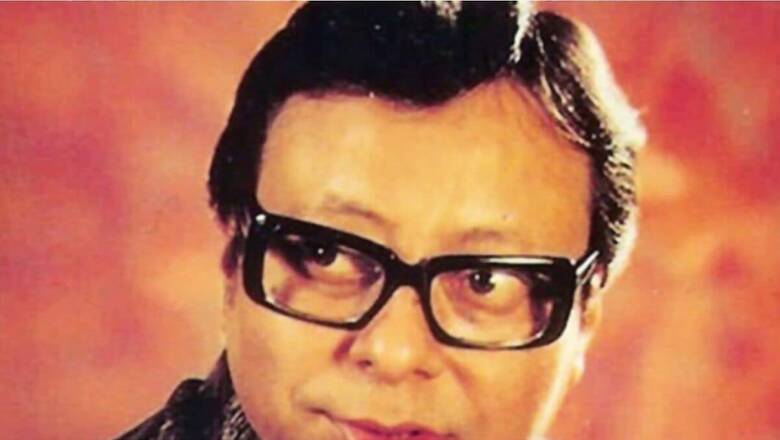
views
The 1990s was a musically different era. This writer made a mixtape with a simple title: Modern Hindi Film Songs. All the songs in the tape had been composed in the 90s, except ‘Chura Liya Hai Tumne’, a Rahul Dev Burman composition in Yaadon Ki Baarat (1973). I had deliberately included it in the personal compilation because it sounded fresh and hummable. Loved by many film music fans even today, Chura Liye Hai… is a classic instance of an RD Burman song that has retained its space in public memory for decades.
The only son of legendary composer Sachin Dev Burman, Burman Jr, also known by his nickname Pancham, was born on July 27, 1939. Growing up in a musical environment, he was attracted to the craft of composing at an early age. He assisted his father in several films, such as Solva Saal (1958), in which he also played the mouth organ in ‘Hai Apna Dil To Awara’. After he went solo as a composer, his musical curiosity and depth of understanding gave rise to compositions film music fans fell in love with.
Burman debuted as an independent music director in Chhote Nawab (1961), but he experienced significant success as a composer for the first time with Teesri Manzil (1966). Songs like ‘O Mere Sona Re Sona’ and ‘O Hasina Zulfowalee Jane Jahaan’ were instant chartbusters. Teesri Manzil’s soundtrack proclaimed the arrival of a talent on the musical scene. It was the start of a long journey, which abruptly ended on January 4, 1994, with his death at 54.
A significant reason for Burman’s enduring popularity is that his music has something for everybody. He was interested in musical genres as diverse as folk and Western music and even incorporated non-musical sounds in some of his songs. He dipped into various sources for his creativity, composing songs that could make listeners hum, dance, smile, or simply pay attention to them in rapt silence.
Among his wonderful raag-based songs are ‘Bada Nathkat Hai Re’ in Amar Prem (1972) based on Raag Khamaaj, ‘Piya Bawri’ in Khubsoorat(1980) in Raag Behag, ‘Humey Tumse Pyaar Kitna’ in Kudrat (1981) in Raag Bhairavi and ‘Roz Roz Daali Daali’ in Angoor (1982) in Raag Yaman Kalyan. These songs have catered to the tastes and preferences of more than one generation. And, they continue to be popular with film music lovers.
Many great Hindi film songs share a quality: a simple but unforgettable melody. Some of the most well-known Burman compositions illustrate his ability to compose such tracks. Some instances: ‘Musafir Hoon Yaaron’ in Parichay (1972), ‘Naam Ghum Jayega’ in Kinara (1977) and ‘Mera Kuchh Samaan’ in Ijaazat(1987). Ijaazat is an arthouse film, but ‘ Mera Kuchh Saaman’ is regarded as a classic that has been widely heard for a long time.
Burman’s long list of popular highlights features soundtracks of Padosan (1968), Kati Patang(1970), Hare Rama Hare Krishna(1971), Seeta Aur Geeta (1972), Yaadon Ki Baarat (1973), Aandhi (1975), Hum Kisise Kum Naheen (1977), Love Story (1981), Bemisaal (1982) andBetaab (1983), among others, which show how he could create a song for every cinematic situation.
Caravan (1971) features the cabaret item number ‘Piya Tu Ab To Aaja,’ memorably picturised on Helen. Although ‘Ek Chatur Naar’ is originally a Saraswati Devi composition in Jhoola (1941), Burman’s version in Padosan is a complex, spontaneously recorded, and without a shade of doubt, the funniest song of Hindi cinema. He evoked melancholy with ease, using the rhythm patterns of his father SD Burman’s composition ‘Jaane Kya Tune Kahi’ in Pyaasa (1957) to create the equally exquisite ‘Diye Jalte Hain Phool Khhilte Hain’ in Namak Haram (1973).
A passionate follower of Western pop songs, Burman was guilty of lifting on more than one occasion. Chura Liya Hai… was inspired by Bojoura’s ‘If It’s Tuesday, This Must Be Belgium’ from her album Everybody’s Day (1967). ‘Jeevan Ke Har Mod Pe’ from Jhoota Kahin Ka (1979) has shades of ‘Verao Vermelha’ from Carlos Santana’s album Festival (1977). Phir Wohi Raat Hai from Ghar (1977) was inspired by ‘Sing’ written by Joe Raposo. Several artists covered the song, including The Carpenters, who included it in their album Now & Then (1973). Mehbooba Mehbooba from Sholay (1975), his version of the traditional song ‘Say You Love Me’ arranged and performed by Demis Roussos and part of his album My Only Fascination (1974), fetched Burman his only Filmfare Award nomination for playback singing.
One can successfully argue that Burman should have stopped himself from getting ‘inspired’ on occasions. However, several such songs acquired their distinct identity because of Burman’s contribution as a composer. ‘Phir Wohi Raat Hai’, for instance, is a great song mainly because of Burman’s compositional prowess and Kishore Kumar’s singing. Not everybody will realise it has been inspired by ‘Sing’– even if they have heard the song.
During his illustrious career, Burman composed music for well over 300 films and collaborated with brilliant singers, notably Lata Mangeshkar, Kishore Kumar, and Asha Bhosle, his wife. His music made significant contributions to many blockbusters, but he struggled to get work in the last few years before his death because of the failure of films for which he had composed music. Yet, 1942: A Love Story (1994) released posthumously gave him his third Filmfare Award. The film’s soundtrack was proof that the magician had not lost his wand, although he used it less often in his final years before bidding goodbye.
The writer, a journalist for three decades, writes on literature and pop culture. Among his books are ‘MSD: The Man, The Leader’, the bestselling biography of former Indian captain MS Dhoni, and the ‘Hall of Fame’ series of film star biographies. Views expressed in the above piece are personal and solely that of the author. They do not necessarily reflect News18’s views.













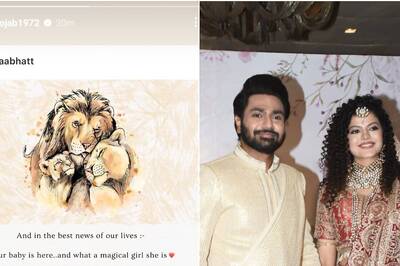

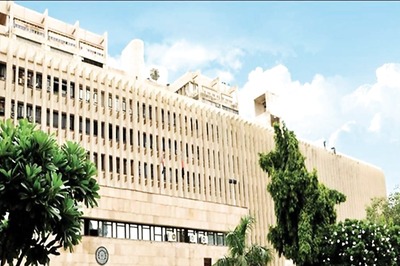

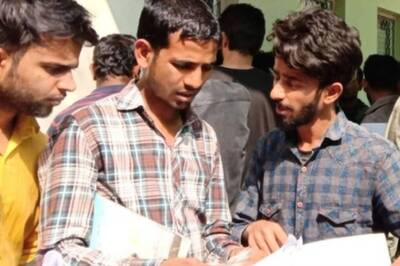
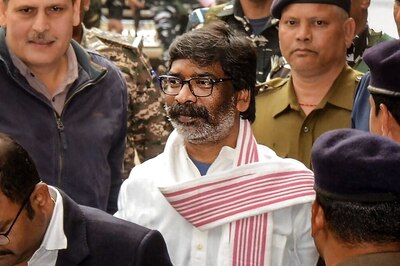
Comments
0 comment